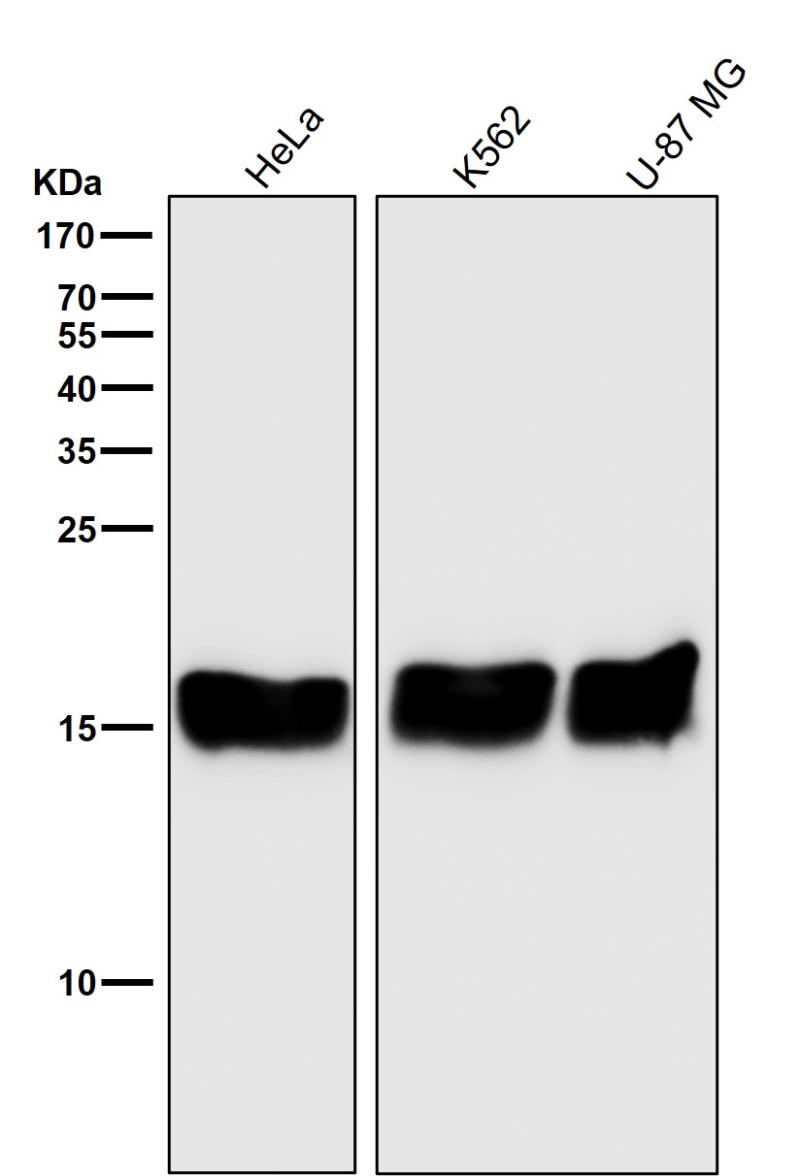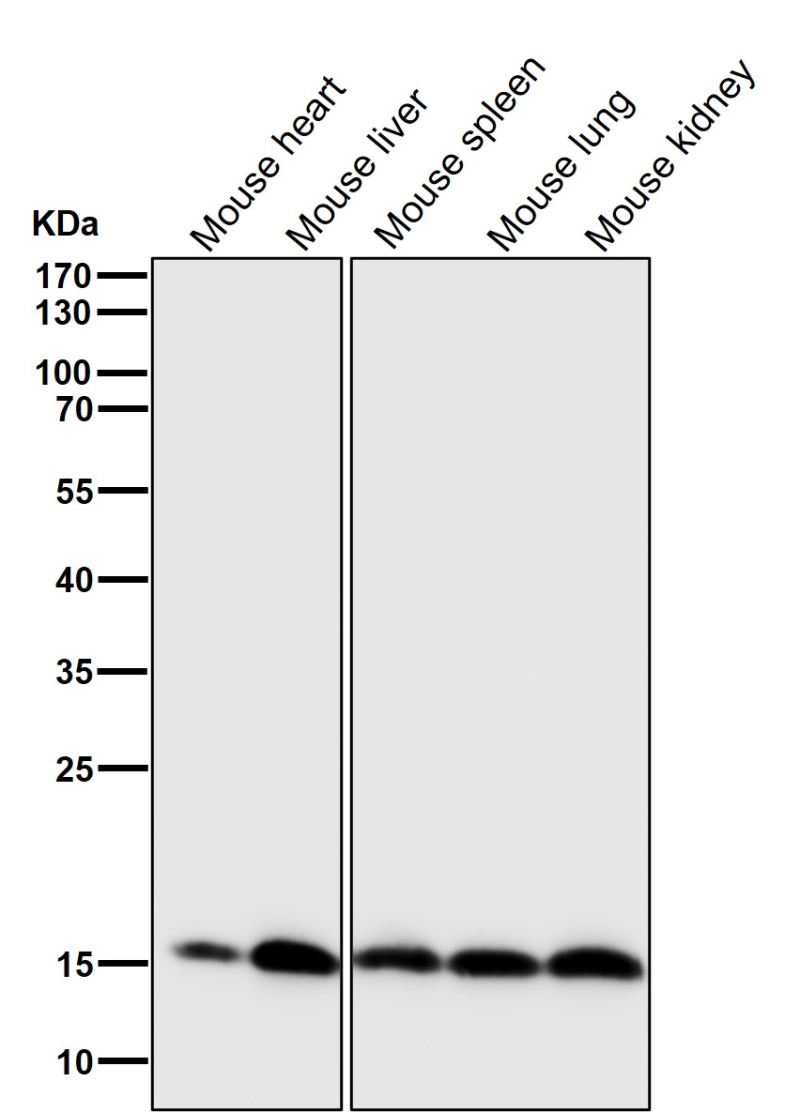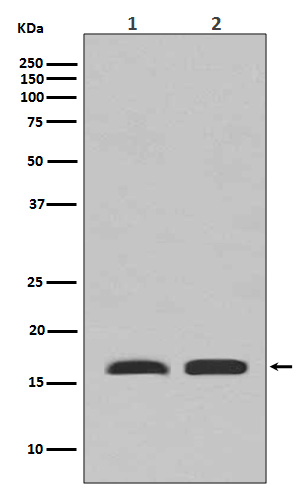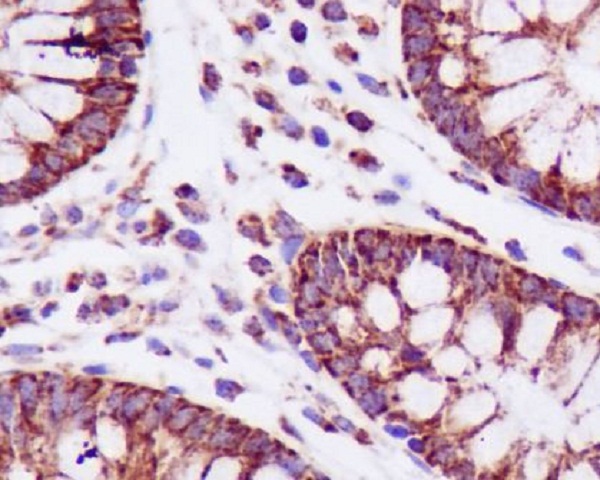



| WB | 1/1000 | Human,Mouse,Rat |
| IF | 咨询技术 | Human,Mouse,Rat |
| IHC | 咨询技术 | Human,Mouse,Rat |
| ICC | 技术咨询 | Human,Mouse,Rat |
| FCM | 咨询技术 | Human,Mouse,Rat |
| Elisa | 咨询技术 | Human,Mouse,Rat |
| Aliases | TSPO; PBR; BZRP; IBP; MBR; PKBS; Mitochondrial benzodiazepine receptor; Peripheral benzodiazepine receptor;;TSPO |
| WB Predicted band size | Calculated MW: 19 kDa ; Observed MW: 18 kDa |
| Host/Isotype | Rabbit IgG |
| Antibody Type | Primary antibody |
| Storage | Store at 4°C short term. Aliquot and store at -20°C long term. Avoid freeze/thaw cycles. |
| Species Reactivity | Human,Mouse |
| Immunogen | A synthesized peptide derived from human TSPO |
| Formulation | Purified antibody in PBS with 0.05% sodium azide,0.05% BSA and 50% glycerol. |
+ +
以下是3篇与SGMS2抗体相关的文献摘要概览,供参考:
---
1. **标题**:*Sphingomyelin synthase 2 is essential for hepatic stellate cell activation and liver fibrosis*
**作者**:Li et al. (2021)
**摘要**:研究利用SGMS2特异性抗体(Western blot/免疫荧光)发现,SGMS2通过调控鞘脂代谢促进肝星状细胞活化,其缺失可减轻小鼠肝纤维化,提示SGMS2抗体在代谢性疾病研究中的工具价值。
2. **标题**:*SGMS2-mediated sphingomyelin synthesis regulates mitochondrial morphology and function in neurons*
**作者**:Park et al. (2019)
**摘要**:通过SGMS2抗体进行免疫染色和蛋白定量,揭示SGMS2合成的鞘磷脂对神经元线粒体形态的关键作用,为神经退行性疾病机制提供新见解。
3. **标题**:*A novel monoclonal antibody against human SGMS2 for detecting tumor-associated lipid changes*
**作者**:Yamaguchi et al. (2020)
**摘要**:报道一种高特异性抗人SGMS2单克隆抗体的开发,验证其在乳腺癌组织中的染色效果,发现SGMS2表达与肿瘤脂代谢异常及患者预后相关。
---
**说明**:
- 文献选取聚焦于SGMS2抗体的**应用场景**(如疾病机制、工具开发)及**关键功能验证**(代谢调控、细胞定位);
- 若需具体文献DOI或补充实验细节(如抗体货号),建议通过PubMed/Google Scholar以“SGMS2 antibody + 应用领域(如cancer, neuroscience)”进一步筛选。
The Sphingomyelin Synthase 2 (SGMS2) antibody is a tool used to study the SGMS2 enzyme, which plays a critical role in sphingolipid metabolism. SGMS2 catalyzes the conversion of ceramide and phosphatidylcholine to sphingomyelin and diacylglycerol, influencing membrane structure, cell signaling, and lipid homeostasis. Primarily localized to the plasma membrane and Golgi apparatus, SGMS2 is implicated in diverse cellular processes, including apoptosis, inflammation, and vesicular trafficking. Dysregulation of SGMS2 has been linked to pathological conditions such as cancer, neurodegenerative disorders, and cardiovascular diseases. For instance, altered SGMS2 expression may affect cancer cell proliferation or neuronal survival by modulating sphingomyelin levels and downstream signaling pathways.
SGMS2 antibodies are essential for detecting protein expression, localization, and quantitative changes in research models. They enable techniques like Western blotting, immunofluorescence, and immunohistochemistry, aiding in the exploration of SGMS2's role in disease mechanisms or therapeutic targeting. Recent studies also highlight SGMS2 mutations associated with rare genetic disorders, including skeletal dysplasia and cerebellar ataxia, underscoring its physiological importance. These antibodies thus serve as vital reagents for advancing understanding of sphingolipid biology and its translational applications in diagnostics and drug development.
×